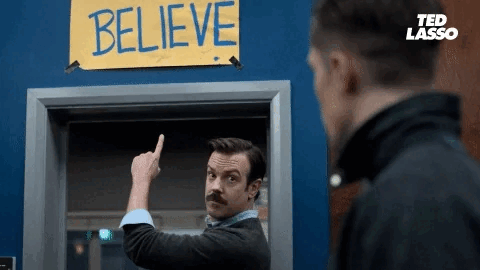Have You Met TED(W)?
Master unbiased and open-ended conversations. Every time.
👋🏻Hi, this is Nikki with a 🔒subscriber-only 🔒 article from User Research Academy. In every article, I cover in-depth topics on how to conduct user research, grow in your career, and fall in love with the craft of user research again.
Hi there, you amazing, curious person!
The most common answer in user research, product, tech, and what feels like the entire world is:
“It depends.”
There are very few times I will say, “Do X, and you will be better at Y.”
Meet one of those few exceptions:
Yes. Ted gets its own big image. And also two fun references:
Or:
Okay. I’m done with gifs. On to the gold.
There are very few copy-and-paste formulas that lead to better outcomes and fewer quick wins. But I’m happy to say this is a quick-win formula to help you ask better, unbiased, non-leading, open-ended questions that lead to depth, rich insights, and data gold.
Most “bad questions” aren’t evil. They’re just lazy structures that trap your participant in yes/no, opinions, and future fantasy. TEDW is the simplest fix I know that works across almost any generative session. Paid subscribers get the version you can actually use mid-interview, under pressure:
the TEDW framework (with examples for each letter)
a “horrible questions” checklist so you can spot bad prompts fast
before/after rewrites you can copy into your next guide
practice prompts to turn TEDW into muscle memory
real-life TEDW phrasing you can use in meetings, 1:1s, and stakeholder chats
Exclusively for paid subscribers





